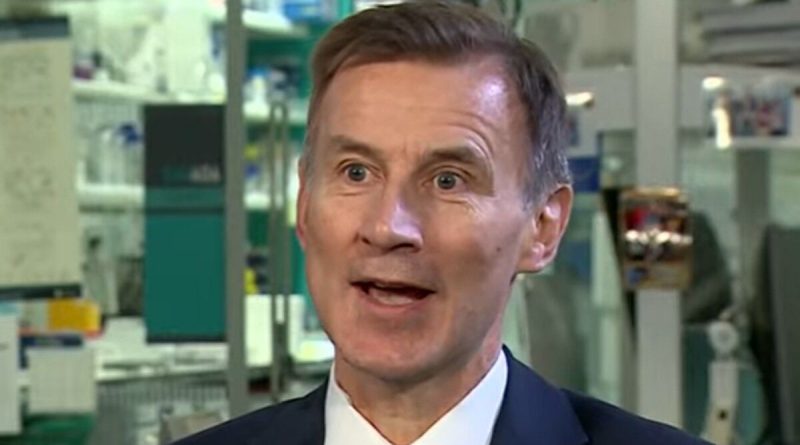Hunt hits back at Rejoiners that think Britain is set up to fail
Jeremy Hunt delivers speech on plans for the UK economy
We use your sign-up to provide content in ways you’ve consented to and to improve our understanding of you. This may include adverts from us and 3rd parties based on our understanding. You can unsubscribe at any time. More info
Jeremy Hunt has hit back at Rejoiners who think Britain is set up to fail, saying the UK economy is “more resilient than many feared”. He said the UK can be “confident of having amongst the best prospects for growth of anywhere in Europe.” While not specifically mentioning Brexit, his comments were seen as a swipe at those who have been claiming Brexit has weakened the British economy in recent weeks.
David Henig, director of the UK trade policy project at the European Centre for International Political Economy, said the nation’s economy was “already vulnerable because of uncertainty after Brexit”.
Meanwhile, economists Ana Andrade and Dan Hanson said the evidence suggests the UK committed “an act of economic self-harm when it voted to leave the EU in 2016”.
They added: “The main takeaway is that the rupture from the single market may have impacted the British economy faster than we, or most other forecasters, expected.”
The UK’s independent Office for Budget Responsibility continues to forecast a long-run loss of productivity of 4 percent as a result of Brexit.

Mr Hunt’s comments come in light of new data which showed that Britain narrowly avoided entering a recession at the end of last year, with the UK economy outperforming expectations.
The economy flatlined between October and December last year, rather than contracting as had been anticipated by many economists.
Figures from the Office of National Statistics (ONS) pointed to 0.01 per cent growth in the final quarter of the year.
Speaking about the figures, ONS director of economic statistics Darren Morgan said: “The economy contracted sharply in December meaning, overall, there was no growth in the economy over the last three months of 2022.
“In December public services were hit by fewer operations and GP visits, partly due to the impact of strikes, as well as notably lower school attendance.
“Meanwhile, the break in Premier League football for the World Cup and postal strikes also caused a slowdown.
“However, these falls were partially offset by a strong month for lawyers, growth in car sales and the cold snap increasing energy generation.”
Source: Read Full Article


